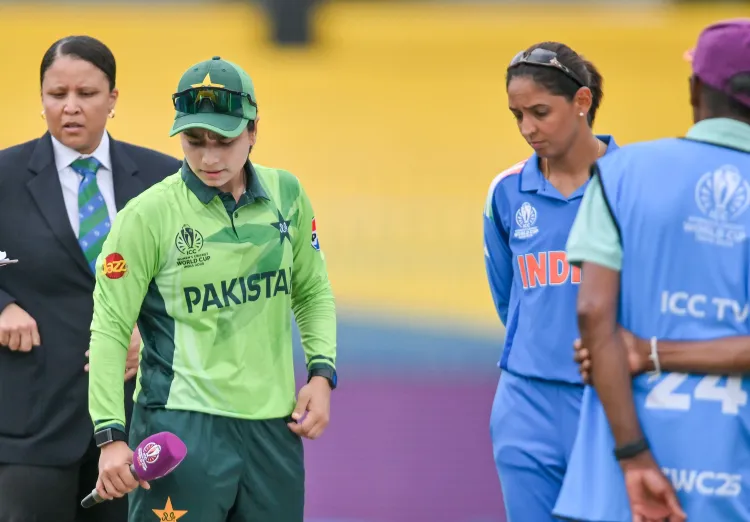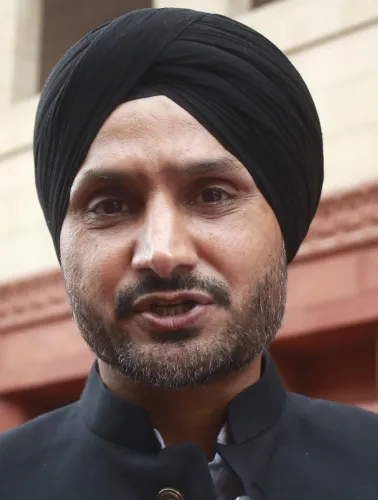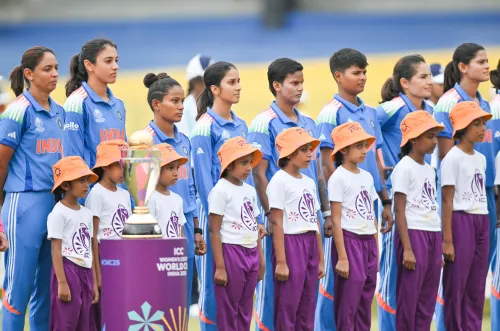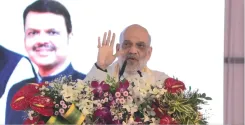Why is India Maintaining a 'No Handshake' Stance Against Pakistan in Women's WC?

Synopsis
Key Takeaways
- India vs Pakistan rivalry continues in women's cricket.
- The 'no handshake' policy reflects current political tensions.
- Historical performances show India has a perfect record against Pakistan.
- Recent match results set the stage for this encounter.
- Strategic changes in playing XI may impact the match outcome.
Colombo, Oct 5 (NationPress) In a much-anticipated clash, India and Pakistan met on the cricket pitch during the ICC Women’s ODI World Cup. The Indian captain, Harmanpreet Kaur, adhered to the 'no handshake' policy during their group match against their long-standing rivals at the R. Premadasa Stadium on Sunday.
At the toss, neither Harmanpreet nor Fatima Sana, the captain of Pakistan, opted to exchange the traditional pleasantries. After Pakistan won the toss and decided to bowl first against India, both captains participated in their respective interviews and then retreated to their dressing areas.
This decision aligns with the 'no handshake' protocol established by the Indian men's team during the recent Men's Asia Cup 2025, where they did not shake hands with the Pakistani team in all three matches and later declined to accept the trophy from Mohsin Naqvi, the President of the Asian Cricket Council and the Interior Minister of Pakistan.
The choice made by India comes in light of the escalating political tensions with Pakistan, particularly following the tragic Pahalgam terror attack. Despite facing each other three times in the tournament, including the final, the teams did not engage in any handshakes.
Leading up to the Women’s World Cup match, both teams exhibited different results from their initial games in the tournament. India entered the match with a victory over Sri Lanka in Guwahati, while Pakistan was still in search of their first points following a loss to Bangladesh in their opening game.
Historically, the two teams have clashed eleven times in this format, with India claiming victory each time. The squad led by Harmanpreet aims to enhance their winning streak by securing a win in Sunday’s match.
Each team made one alteration to their playing XI from their last matches. For India, pacer Renuka Singh Thakur replaces Amanjot Kaur, while Sadaf Shamas takes the place of Omaima Sohail for Pakistan.









